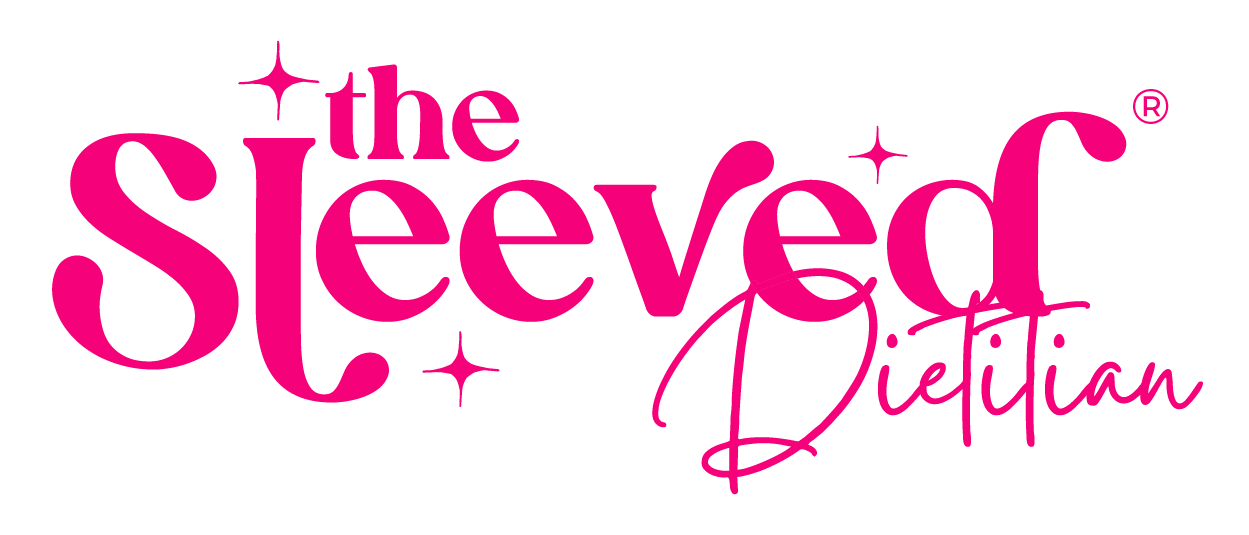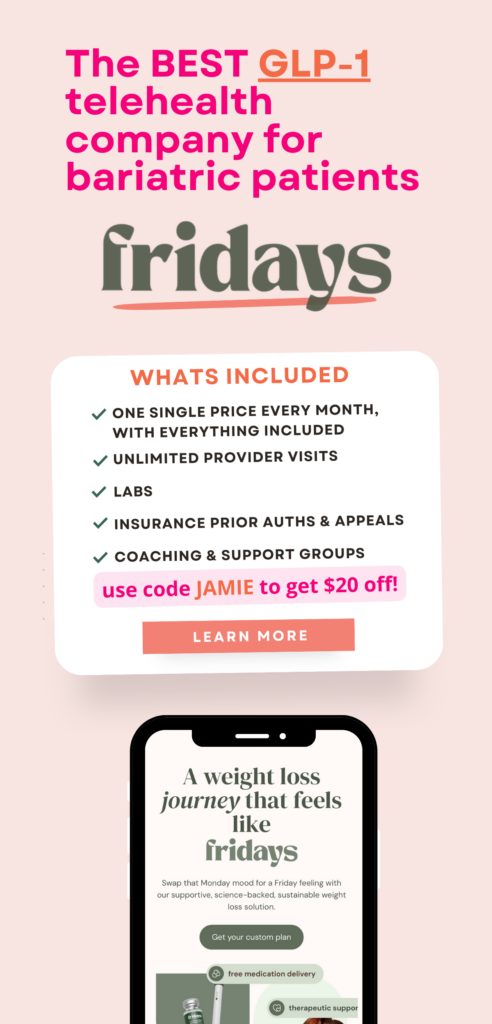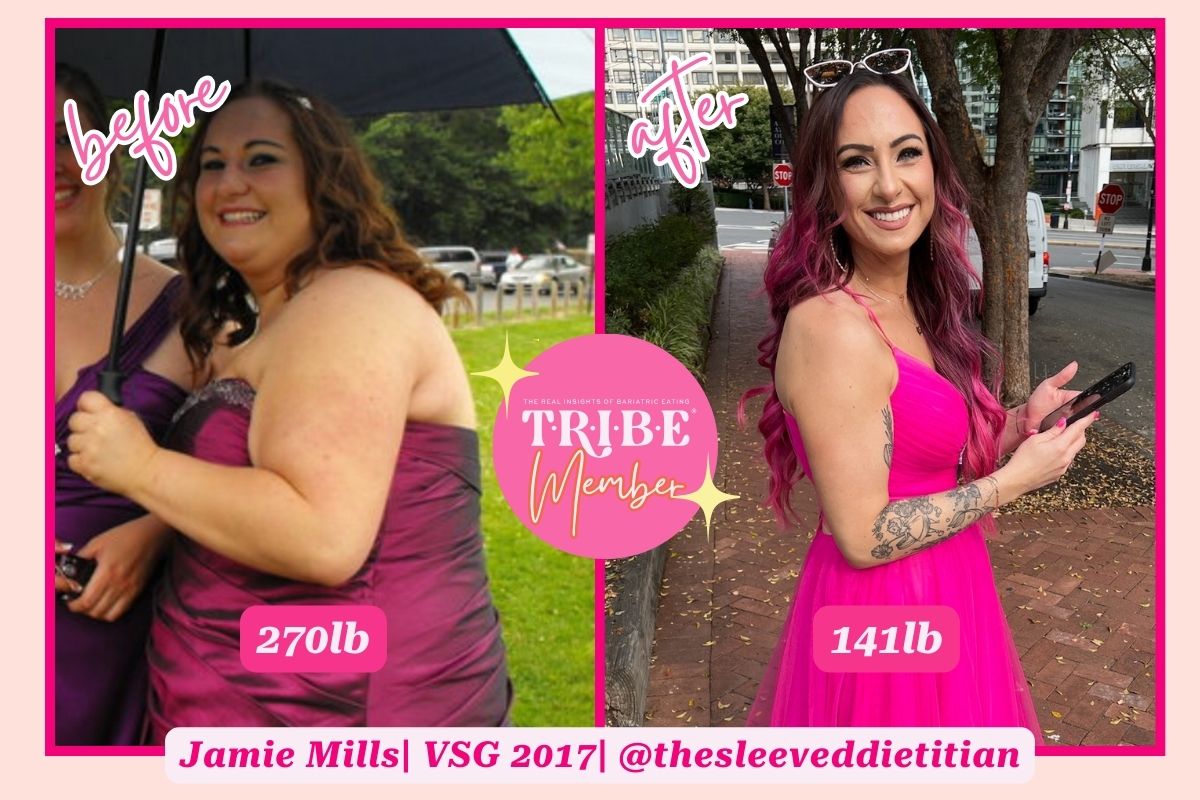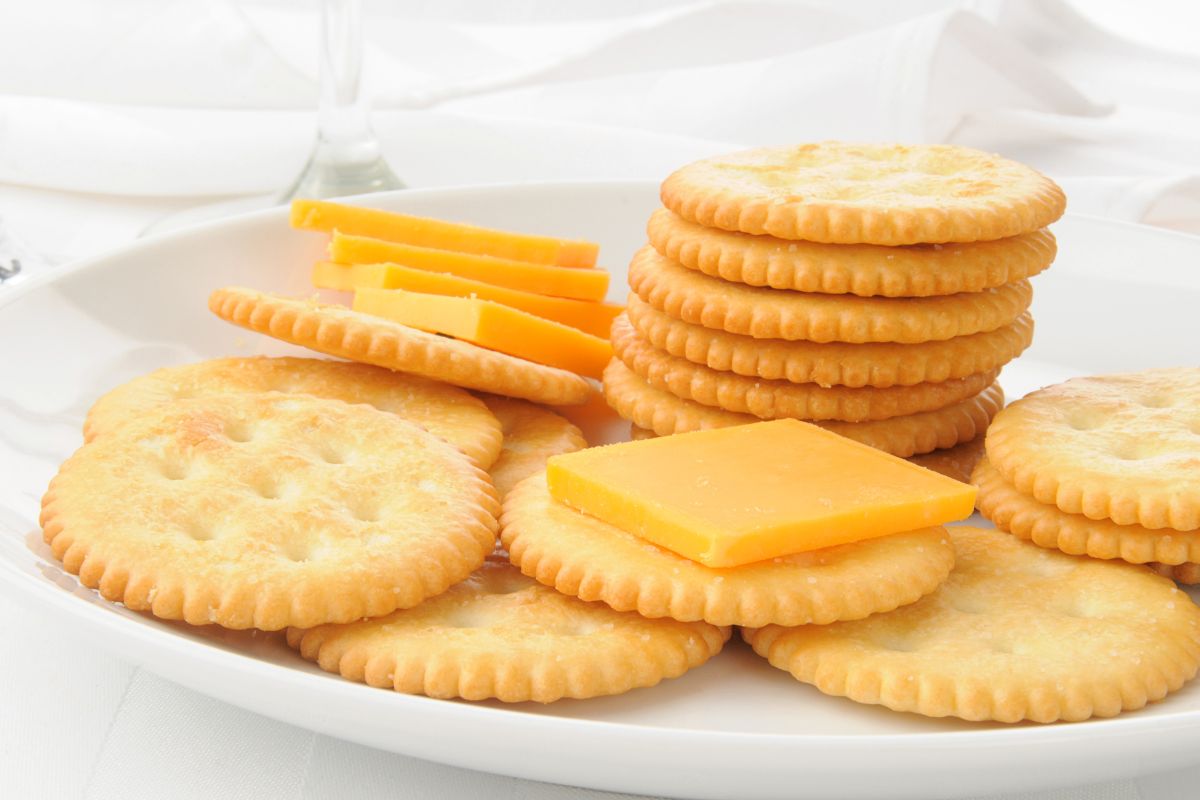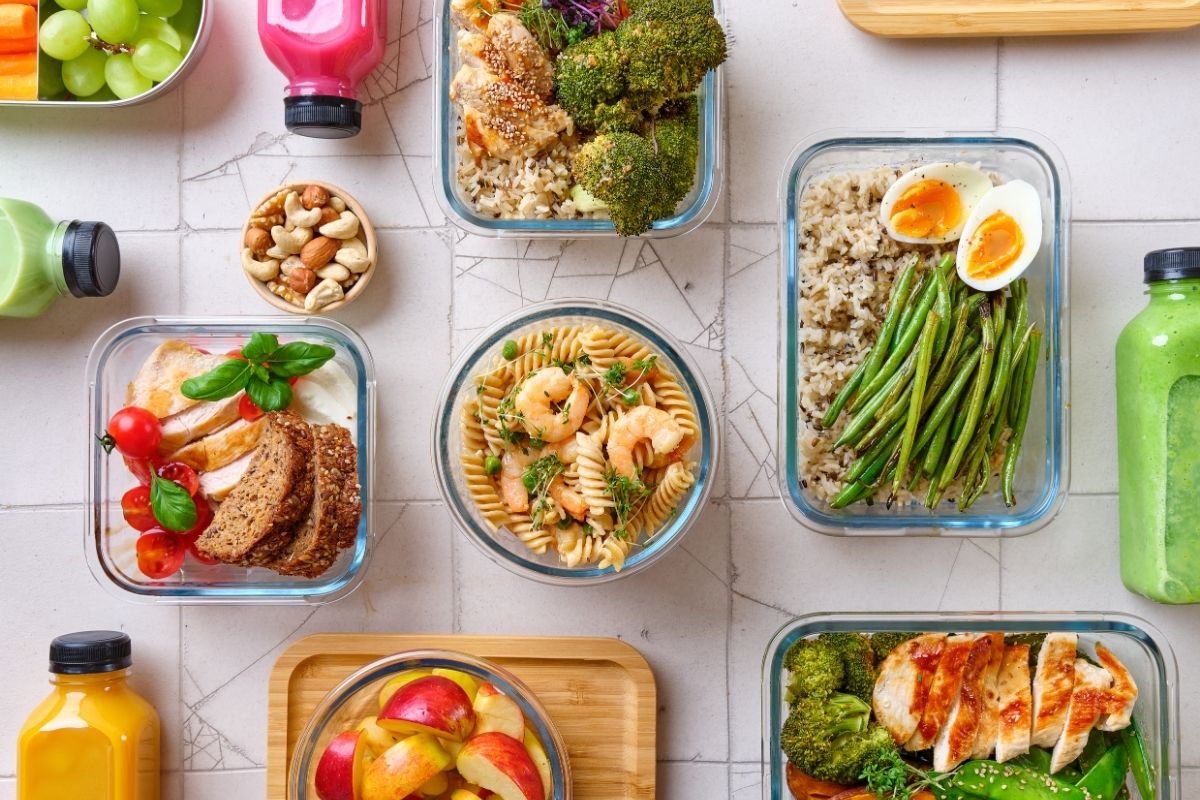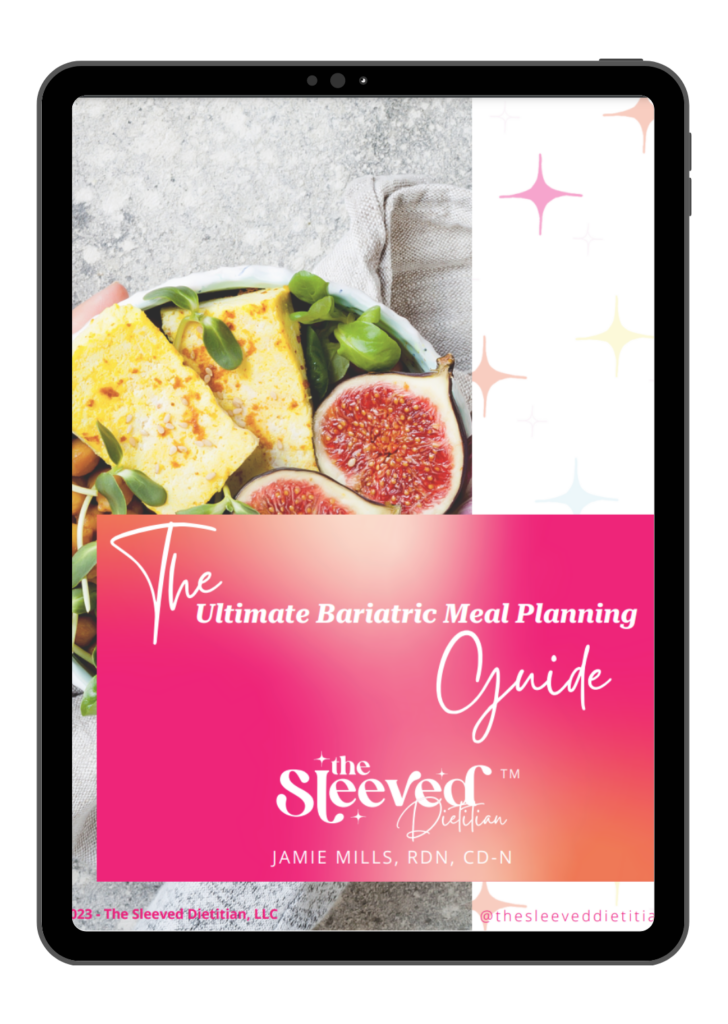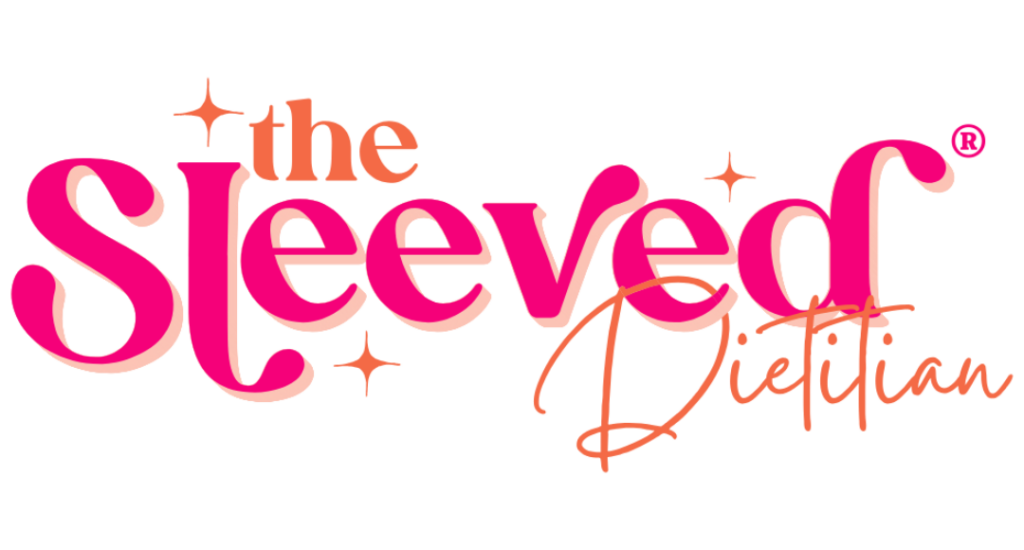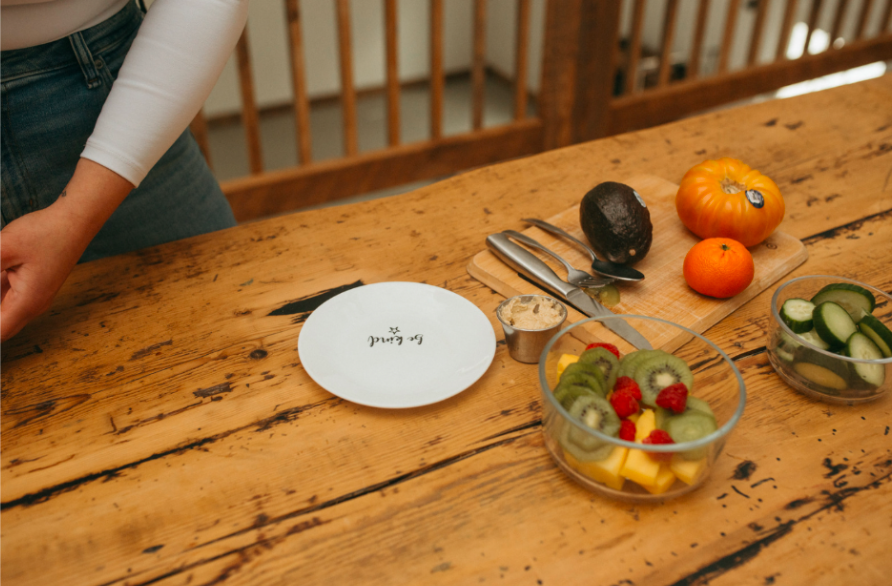
So you’ve had weight loss surgery and your bariatric surgery team has laid down an ultimatum: no more snacking. Period.
Do they really mean it? Like, never, ever, ever?
Worrying about when it is okay to have a bite of this or a handful of that might have your belly churning with stress and guilt.
Hi, I’m Jamie, registered dietitian, and fellow bariatric patient. I’m here to give you the real truth about how to manage snacks after weight loss surgery. And fun fact: I disagree with the common recommendation to never snack again. I just don’t think that it is realistic!
But I also know that snacking and adding in certain foods can bring up a lot of anxiety. Will you feel completely out of control? This is a real fear for a lot of Bariatric Babes and a fear I’ve dealt with myself.
In this blog post, I’ll walk you through the dos and don’ts of snacking, explain the difference between having “a snack” and “snacking” and why that matters, and even share some of my favorite snacks that I enjoy (bring on the pickles!).
Ready? Let’s dive in.
Snacking 101
You know what? Snacking is actually exciting for me to talk about because this isn’t an area that I feel is well-supported in the bariatric world. I know that this blog post is going to have a lot of really helpful information for you to start using today!
Many centers just have a flat “no snack rule”…but I don’t think that it is realistic to write off snacks altogether. But it matters what you eat and when…and also why.
Here’s the thing: snacks are often necessary in order to hit your protein goals. Since we can’t eat very much at once, having snacks throughout the day can help ensure that you are continually getting your protein in. Protein is important for many reasons, including minimizing hair loss after surgery and keeping you fuller longer. Check out this post for the details: Is Hair Loss After Gastric Sleeve Normal (or Preventable?).
I like to say that all foods can fit, just not all the time. And I even think it is okay to eat at night! I’ll explain how to make empowered decisions that make you feel good, and help you to stay on track with your weight and wellness goals.
But first, let’s chat about having “a snack” vs. “snacking”. There is an important difference between having a snack, with a start and an end, vs. grazing, or the kind of “snacking” that keeps going and going (and going!). All of those “little” bites add up…and so can the shame and guilt. And that kind of eating is more than likely driven by boredom or emotions and not true hunger.
My goal for this blog post is to help you learn how to build a snack that you can feel good about, and continue to use your pouch as intended, vs. having “little” bites all day long that seem too small to be worth tracking, but may actually throw a wrench in your weight loss goals.
We all have our own relationship (and baggage) with food, so give yourself grace as you continue to work on yourself and your relationship with food. Balance does not happen overnight.
There is a time and a place for everything, even snacking.
Let’s explore possible reasons why you might want to snack and how to navigate those feelings that might be bubbling up.
Dig for your why
A big piece of empowered snacking has to do with the mindset. Sometimes we snack as a way to cope or emotionally or mindlessly eat and that’s what you want to avoid, but that doesn’t mean you can’t or shouldn’t have a balanced snack.
So…you’re wanting a snack. Before you can make an empowered decision, it is time for you to get curious about what is going on with you at this particular moment.
I recommend taking a two-minute pause before having a snack and asking yourself a few questions.
Are you bored? Anxious? This might be a clue that your “hunger” is actually what I like to call “head hunger” and not true hunger, where your body needs to refuel.
Having a snack for emotional reasons might not end up feeling like an empowered decision. Try to address the real emotional reason that is cueing the eating, vs. eating to soothe.
Are you procrastinating? This one still gets me from time to time. Snacking can push off tasks that might be less fun or outside of your comfort zone. See if you can break that task into smaller, more manageable pieces and make some progress.
Is this a habit? Sometimes you might head to the pantry or freezer just because it is what you’ve always done. While I have no problem with you eating at night (or anytime) if you’re hungry, a two-minute pause will help you to understand if it is actually hunger or if it is a habit.
If you’re feeling truly hungry, have a snack!
Having the snack
Have you taken a pause, assessed the situation, and decided that your body is ready for a snack? Great! Let’s make this an empowered decision.
We don’t need to feel guilty or try to talk ourselves out of the snack. We don’t need to “should” ourselves. Our body can’t tell time but it can tell us when she needs fuel; we are practicing how to listen.
Sometimes bariatric patients are trying to skip snacks to keep their calories as low as possible throughout the day. Let me be straight with you: trying to eat as little as possible ALWAYS backfires.
So, if it is time for a snack: have one! I want you to be able to go to bed without worry.
Try to make a snack that tastes good. You have to make sure that your meals and snacks are satisfying, or you’re going to feel burnt out trying to manage your eating after surgery.
Let’s talk about how to build a snack that satisfies your taste buds AND your eating guidelines after surgery.
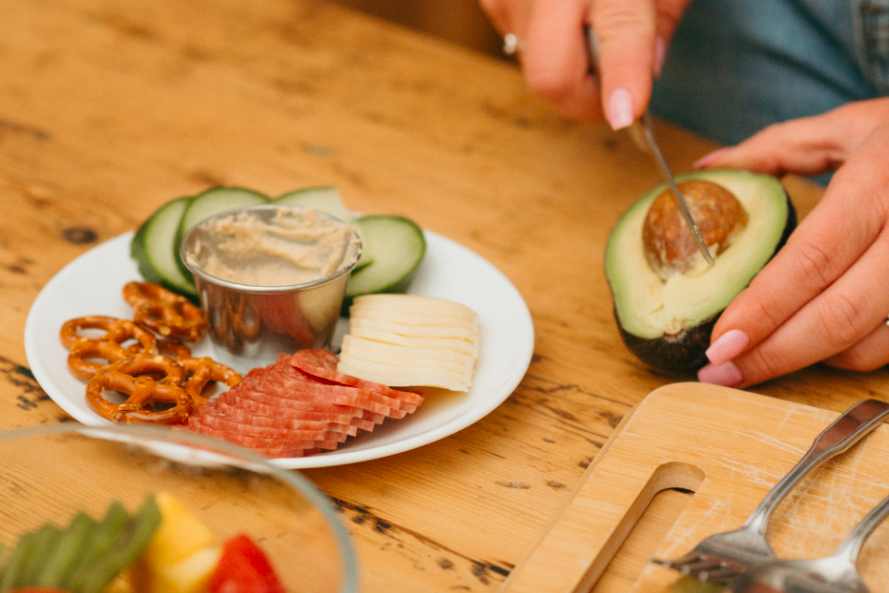
How to build a bariatric snack
I recommend thinking about your snack the same way you think about building a meal. The portion will be smaller but aim to have at least two or more nutrients, such as a protein + a carb, or a protein + a fat + fiber.
For your bariatric snacks, I also recommend more than one flavor or texture so that the snack is more enjoyable to eat, such as something sweet and something salty (sweet grapes and sharp cheddar), or something creamy and something crunchy (such as pretzels and hummus).
Example bariatric snacks
Here are a few examples of bariatric snack combos. Of course, keep in mind that these recommendations are for you once it is appropriate for you to have them post-op. Don’t skip your post-op diet stages. If something that I’ve listed here isn’t right for you yet, refer the instructions that your surgeon provided.:
- Crackers and a cheese stick
- Edamame and fruit
- Apple and peanut butter
- Yogurt and berries
- Pretzels and hummus
My favorite bariatric snack? Apples, cheese, and pickles (pro tip – the pickles count as a veggie!)
A few quick notes here: the right portion size can vary from one Bariatric Babe to another. In fact, we have a whole module on finding your perfect portion sizes in the T.R.I.B.E membership program.
Tips for snacking better
Here are a few bonus tips for snacking in a way that feels good, empowered and keeps you on track with your overall goals.
Be mindful.
Try to stop eating while distracted so often. Do you need to be perfect? Nope; that isn’t realistic.
But if you can be more mindful at some meals and snacks throughout the week, it will help you to better tune into your body and your emotions. AND, when you’re tuned into your meals and snacks, you can enjoy them better.
I explain exactly what mindful eating is (and why Intuitive Eating isn’t necessarily a good fit for Bariatric Babes) in this recent blog post: The Difference Between Mindful Eating and Intuitive Eating (WLS Edition).
Use a plate
No matter what snack you choose: put your food on a plate. Don’t just eat snacks from a bag, or you’re more likely to nosh mindlessly and turn your snack into grazing.
Skip the drinks while snacking
As much as I love an iced coffee in the afternoon, I’m not drinking it while I’m having a snack. After bariatric surgery, the recommendation is to hydrate between meals and snacks, not while eating. This allows your stomach pouch to feel full more quickly, as intended.
If you’re new to the ‘no eating and drinking together’ rule, check out this post: The No Eating and Drinking Together Rule.
That’s a wrap
Snacks can totally be okay. It is important to have a pause and work on curbing any old habits or tendencies to use food to mask uncomfortable feelings, such as anxiety or boredom.
But if your body is hungry, grab a plate (I always recommend a 6″ or salad plate) and build yourself a snack plate that you will enjoy! Try to pause, enjoy each little bite and then move on. No need for shame or guilt.
It matters what you do most of the time, not what you do each and every single time. Eating can feel so dang complicated. As a member of the T.R.I.B.E. community, you’ll have practical and emotional support on your journey pre- and post-bariatric surgery. You’ll feel supported and be surrounded by others going through the journey with you, because Babe, we’ve been there too.
